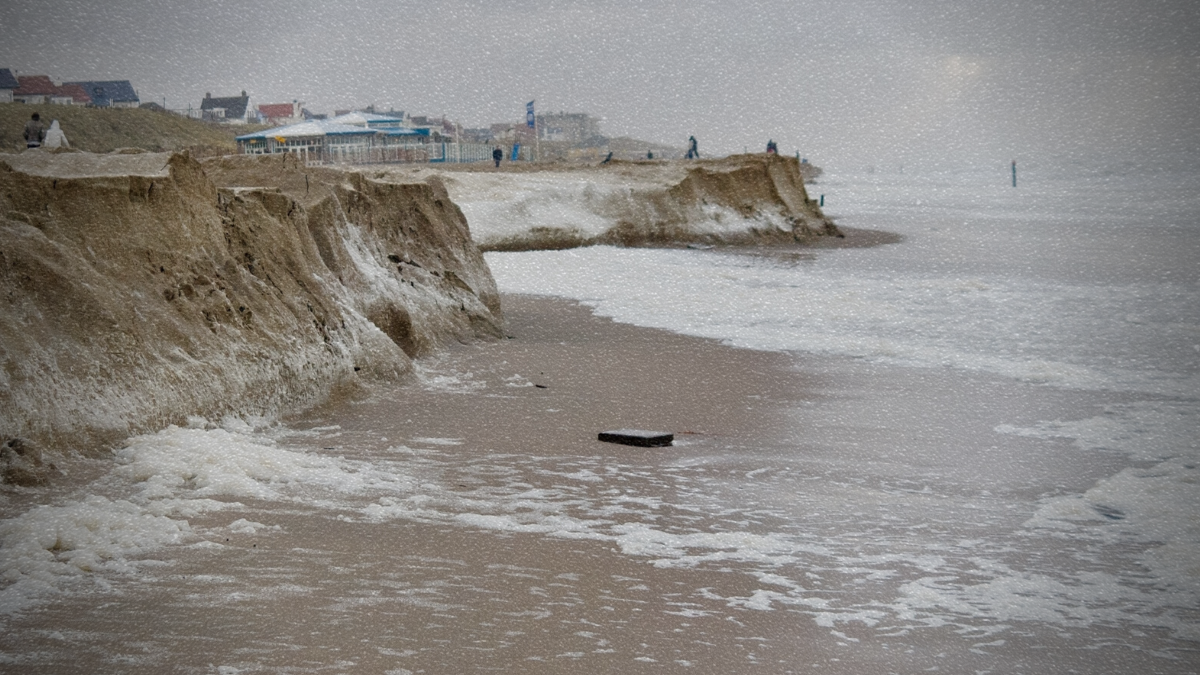Erosion along the Outer Banks continues to wreak havoc, exposing a hidden chapter of history at Cape Hatteras National Seashore. The National Park Service has been forced to close an additional 1,600 feet of beach due to safety concerns arising from the relentless retreat of the shoreline.
The exposed area reveals remnants of a Cold War-era military facility, raising new environmental anxieties. Park officials report “petroleum odors and sheen” emanating from the site, believed to be leaking from buried structures used by the Navy and Coast Guard.
“The Coast Guard and Army Corps of Engineers have been notified about the recent observations and the Seashore will be meeting with both agencies,” stated park officials in a press release.
This isn’t the first time erosion has unearthed surprises at the seashore. Last September, storms uncovered “potentially hazardous infrastructure” previously hidden beneath the sand, prompting initial beach closures south of Buxton.
The newly exposed area, stretching from the southernmost beachfront home in Buxton to the first jetty, adds another three-tenths of a mile to the restricted zone. The compromised section once housed Naval Facility Cape Hatteras, a top-secret Cold War base dedicated to “secret monitoring of submarines,” according to CoastalReview.org.
Historians note the facility’s role as an early warning system for ballistic missile attacks. The National Park Service confirms this, stating the base housed a Sound Surveillance System (SOSUS), a network of underwater listening stations used to track Soviet submarine activity.
While the base ceased operations in 1982, concerns linger about potential environmental hazards buried beneath the surface. Agreements between the Park Service and the Coast Guard mandated removal of all structures upon closure. However, lingering anxieties surround the fate of a sewage treatment plant and diesel generators, raising fears of groundwater contamination.
The relentless erosion at Cape Hatteras National Seashore presents a double threat: endangering public safety and unearthing potential environmental hazards from a bygone era.





